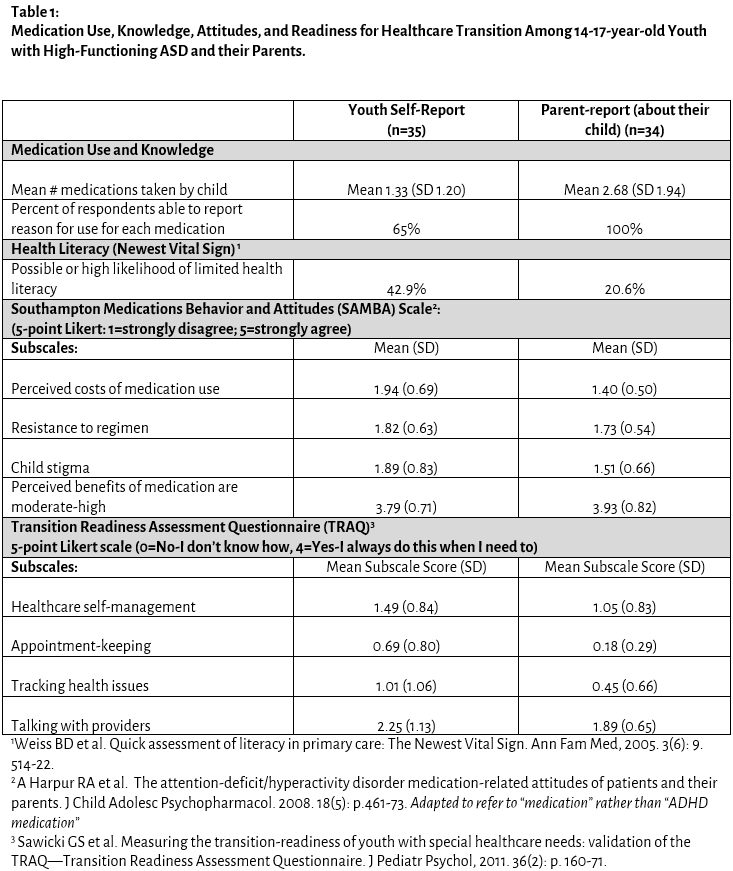Silverman L, Hyman SL, Aldrich J, Harris DL, Shone LP
Background: ≤ 42% of children and 62% of adults with ASD use >1 psychotherapeutic medication yet youth/caregiver medication knowledge, attitudes, and perceived readiness for medication self-management are not well understood.
Objective: To quantify medication knowledge, attitudes, and perceived readiness for transition to healthcare and medication self-management in transition-age youth with ASD and their parents.
Methods: Participants in Rochester, NY were 35 youth (14-25 yrs) with higher-functioning ASD and 34 of their parents. Both groups completed a structured interview and electronic survey: youth reported self-perceptions and parents reported perceptions of their child. Respondents listed the child’s current medications and reasons for use. Measures included the Newest Vital Sign (health literacy) and the Southampton ADHD Medication Behaviour and Attitudes Scale (SAMBA), a 32-item, 5-point Likert scale (1=strongly disagree, 5=strongly agree) modified for all medications. Mean SAMBA subscale scores quantified perceived costs and benefits of medication, patient stigma, and resistance to treatment. The Transition Readiness Assessment Questionnaire (TRAQ) quantified health self-management skills via a 20-item, 5-point Likert scale (0=No-I don’t know how, 4=Yes-I always do this...).
Results: Table 1 shows results. Youth medication knowledge was limited. More youth (43%) than parents (21%) had scores suggesting limited health literacy. Mean SAMBA scores in both groups indicated a perceived low to moderate: burden of medication use, resistance to medication regimen, and stigma; and moderate/high benefits of medication. Mean TRAQ subscale scores indicated very limited readiness for healthcare self-management. Intraclass correlations demonstrated no significant relationships between adolescent and parent ratings on either the SAMBA or TRAQ subscales, indicating that youth with ASD and their parents differed in attitudes toward medication and in perception of the adolescents’ competence related to independently taking care of health care needs.
Conclusion: Findings suggest that groups of youth with ASD and parents see medication as beneficial yet youth and their own parents do not reliably share uniform perspectives toward medication. Youth with ASD and their parents also have diffing perspectives on adolescents’ readiness to manage their health care, suggesting the need for skill-building interventions in transition planning for adolescents with ASD.

Last Updated
10/08/2021
Source
American Academy of Pediatrics